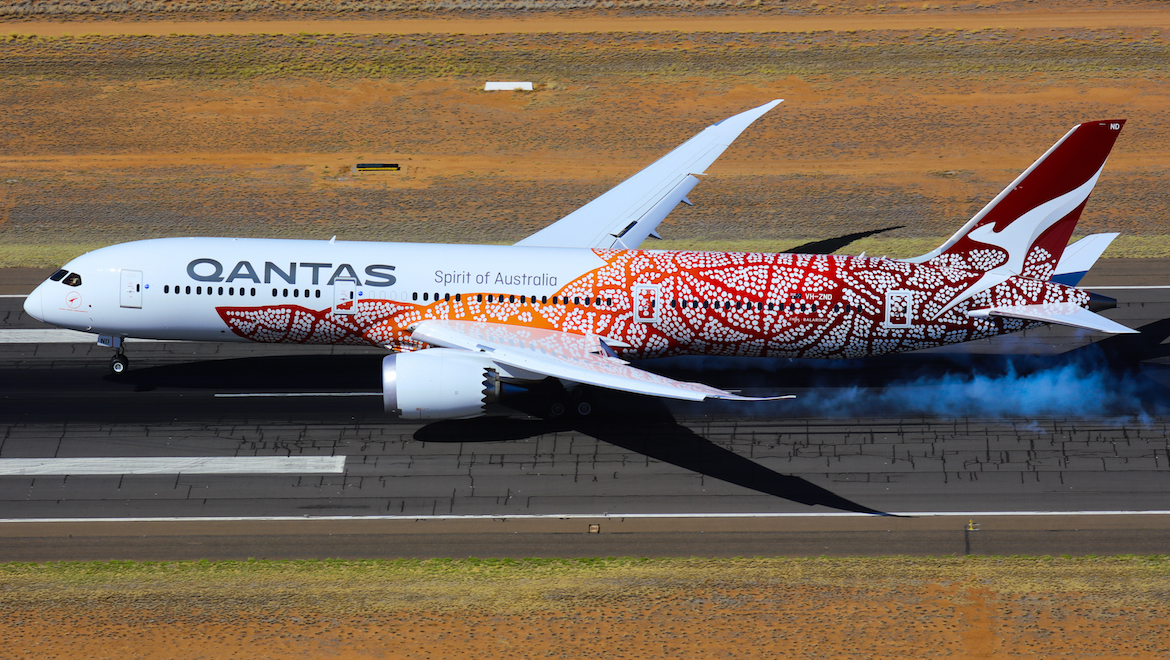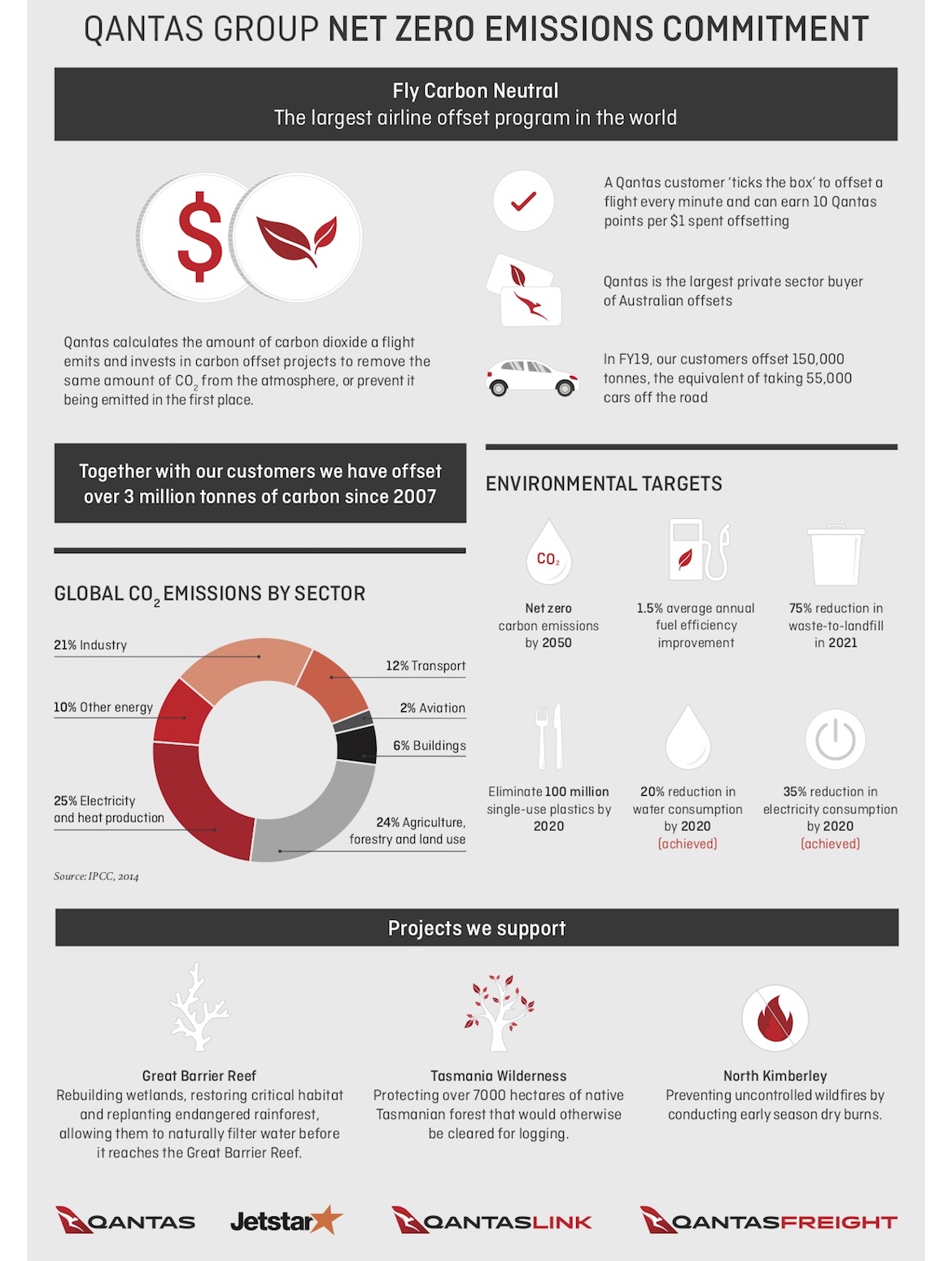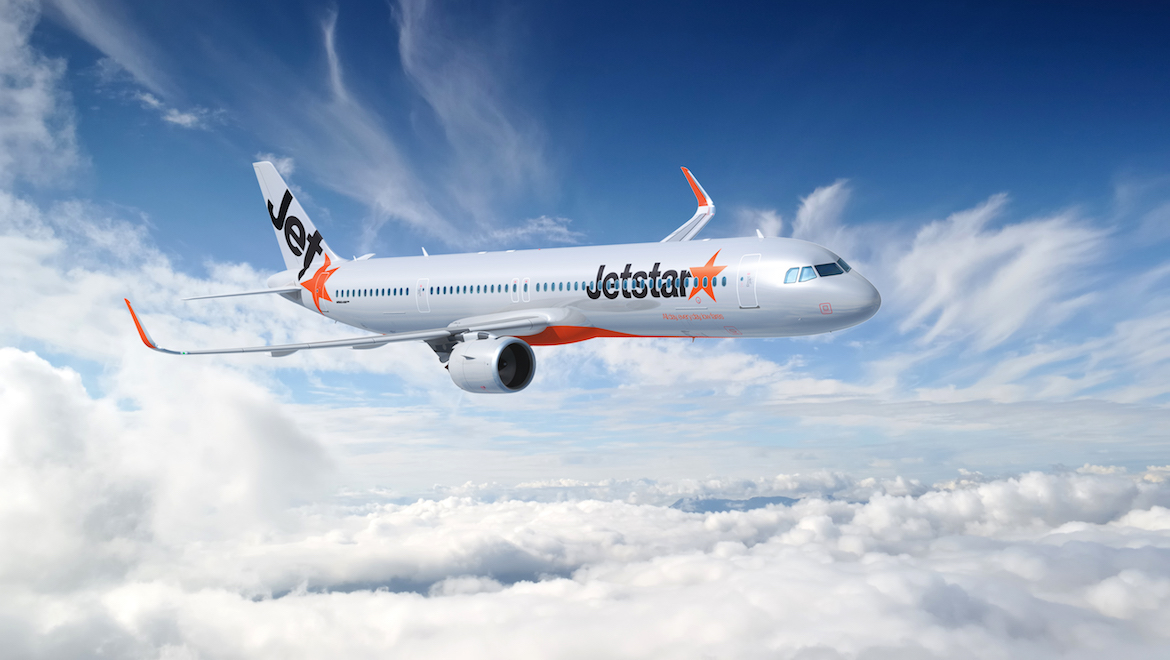
Qantas says it will spend $50 million over the next decade on sustainable aviation biofuels and match its passengers’ commitment to fly carbon neutral as part of efforts to reach zero net emissions by 2050.
The initiatives, announced on Monday, also included a commitment cap its net emissions at 2020 levels.
Qantas chief executive Alan Joyce said the airline group had a responsibility to cut emissions and combat climate change.
He described the 2050 target as “ambitious but achievable”.
“We’ve already made some good progress, especially by investing in newer aircraft that have a much smaller carbon footprint,” Joyce said in a statement.
“We want to do more, and faster.”
The airline group said it would work with industry, research institutions and governments to “develop the long-term solutions to significantly reduce greenhouse gas emissions from the aviation industry over the next three decades”.
Qantas said it would match every dollar a passenger paid when they ticked the box to fly carbon neutral when booking their flights.
Currently, about 10 per cent of customers booking their travel on the Qantas website chose to offset their flights.
The airline recently started offering frequent flyer points for those who paid to carbon offset their flights as a way to encourage more people to tick the box.
By choosing to match every dollar spent on the carbon offset scheme, Qantas said it expected “even more people to offset their emissions”.
“Qantas offsets all of its own travel needs and so do many of our customers,” Joyce said. “By matching their efforts, we’re hoping it will encourage even more people to offset and the program will keep growing.”
The money was spent on Australian carbon credits that supported conservation and environmental projects such as protecting the Great Barrier Reef, working with Indigenous communities to reduce wildfires in Western Australia and securing over 7000 hectares of native Tasmanian forest, Qantas said.

Meanwhile, Qantas said the $50 million to help develop a sustainable aviation fuel industry would be spent over the next 10 years.
“We know from our own trials that the technology works but we need to get to a scale of production where it’s a practical substitute,” Joyce said.
It was announced in May Europe would get its first dedicated plant for the production of sustainable aviation fuel, located in the Netherlands after KLM Royal Dutch Airlines made a commitment to develop and purchase 75,000 tonnes of the fuel.
The introduction of newer, more fuel efficient aircraft such as the Boeing 787-9 at Qantas and (from 2020) Airbus A321LR at Jetstar would also lower carbon emissions at the airline group.

The aviation industry has committed to reduce its carbon footprint through the landmark Carbon Offsetting and Reduction Scheme for International Aviation (CORSIA) that was agreed to by the overwhelming number of International Civil Aviation Organisation’s (ICAO) 191 member states in October 2016. It was then reinforced earlier in 2019.
The CORSIA agreement has among its targets for the industry to achieve carbon neutral growth from 2020, in addition to a 50 per cent reduction in CO2 emissions by 2050, compared with 2005 levels.
In addition to the CORSIA targets, the International Air Transport Association (IATA) has set a target of reducing carbon emissions per passenger by 1.5 per cent per year from 2009 to 2020, as well as aspirations to build an aircraft that produced no emissions within 50 years.
Figures from IATA showed the results from the first 10 years showed a reduction above the target at about 2.3-2.4 per cent.
Further, IATA chief executive Alexandre de Juniac said recently the average journey by air today emitted 50 per cent less carbon than it did in 1990.
















Stuart
says:Is anyone ever going to mention the forest and habitat loss needed to make way for aviation fuel crops? I think it’s something people need to be made aware of.
Harry
says:Or that it will only compete with food crops for the planets exploding population. Carbon offsets are a cop out as they only shift the problem somewhere else.
Recent Qantas announcements are only pushing the issue down the road beyond the tenancy of current management.